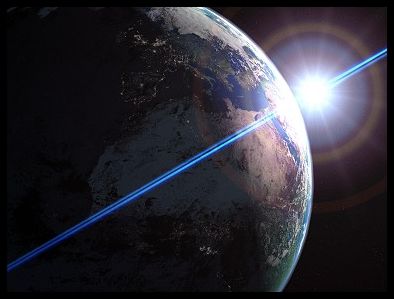

|
Astronomy 161
An Introduction to Solar System Astronomy
Prof. Scott Gaudi
|
Lecture 1: Introduction to Astronomy
An Exciting Time
- Solar System Astronomy (Planetary Science) is in the midst of a
real Renaissance
- Major discoveries in the last few years include:
- A new population of small bodies beyond Neptune.
- New dwarf planets in the outer solar system.
- New moons of Pluto.
- Dozens of new moons of the giant plantes.
- Also the demotion of Pluto!
What is Astronomy?
- From the Greek astronomos
- astron = star
- nomos = a system of laws
Today Astronomy means Astrophysics - the study of the physics of
celestial objects
What is Science?
Science is not just a collection of facts, but a process of critical thinking
that leads to understanding the world around us.
- Starts with a collection of careful observations of the world around us
- Provides a framework to understand these observations
- This framework can then predict future observations and deepen our
understanding
The Scientific Method
- 1. Gather Facts
- 2. Create a Hypothesis to Explain these Facts
- 3. Create a Prediction from the Hypothesis
- 4. Test this Prediction against other Facts
Successful? Create new predictions and gather more facts
Unsuccessful? Return to Step 2
Law, Hypothesis, and Theory
- Scientific Law: statement of fact meant to concisely describe
observations
- Newton's Law of Gravity: objects are attracted to one another because
they have mass
- Scientific Hypothesis: educated guess at an explanation of observation
- Apple Hypothesis: Apples fall toward the Earth, therefore apples
and the Earth have mass
- Scientific Theory: explanation of a large set of observations that
merges many hypothesis in a simple way
- Einstein's General Theory of Relativity: mass curves spacetime
and causes objects to attract one another
- Examples: Theory of Relativity, Quantum Theory
Descriptive Astronomy
- Apparent Motions of the Sun, Moon, and Stars
- The Seasons
- Timekeeping and Calendars
- Phases of the Moon
- Eclipses of the Sun and Moon
- Motions of the Planets
Historical Origins of Astronomy
- Classical Astronomy
- Copernican Revolution
- Copernicus
- Brahe
- Kepler
- Galilei
- Newtonian Synthesis
Physics of Astronomy
- Gravitation
- Newton's Laws
- Orbits and Tides
- Light and Atoms
- Electromagnetic Spectrum
- Atomic Structure
- Interaction of Light and Matter
- Tools of the Astronomer
The Solar System
- The Earth and Moon
- Comparative Planetology
- Terrestrial Planets
- Jovian Planets
- Comets, Asteroids, and the Outer Solar System
- Origin of the Solar System
- Other Solar Systems
- Life in the Universe
See A Note about Graphics to learn
why some of the graphics shown in the lectures are not reproduced with
these notes.
[
Return to the Astronomy 161 Main Page
|
Unit 1 Page
]
Copyright © Scott Gaudi All Rights
Reserved.

